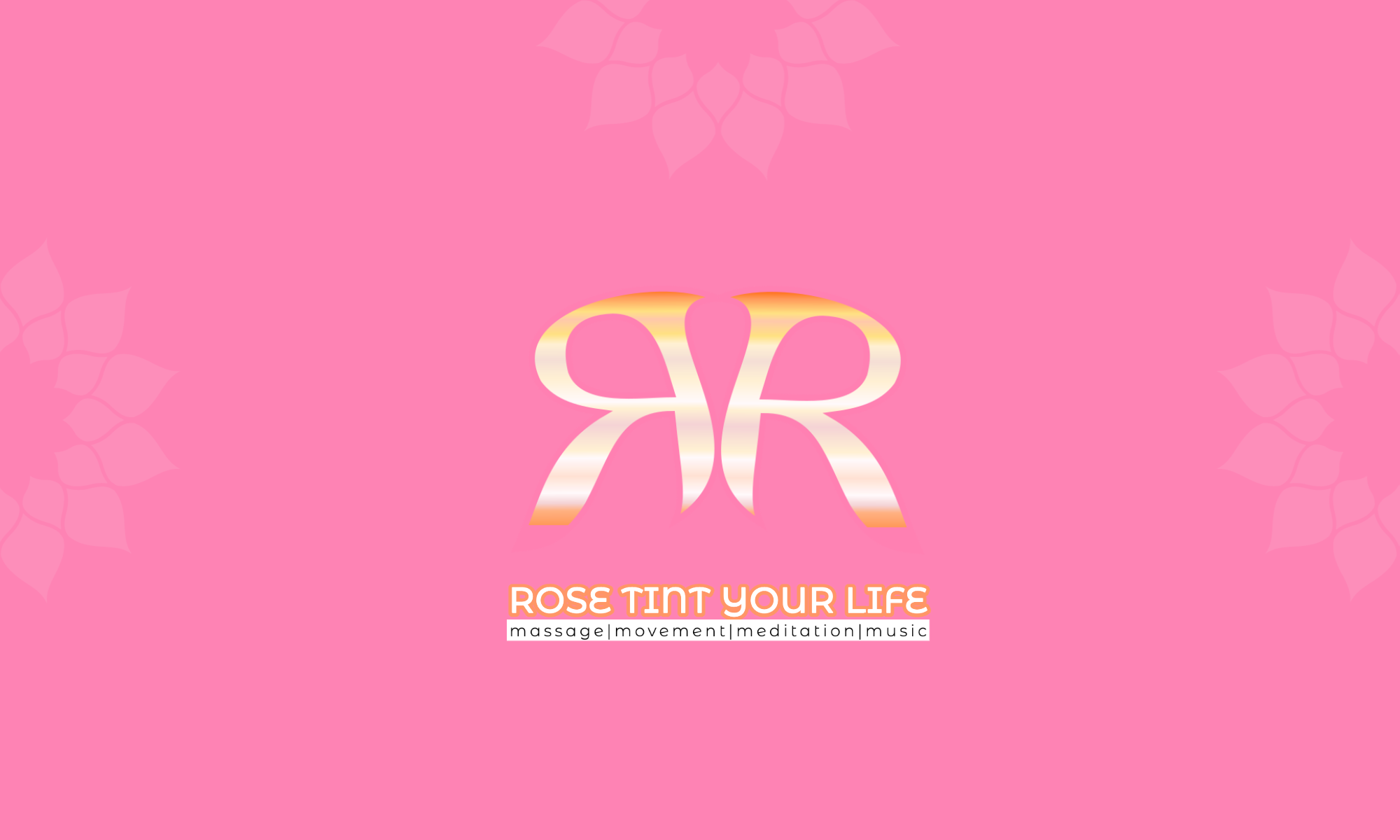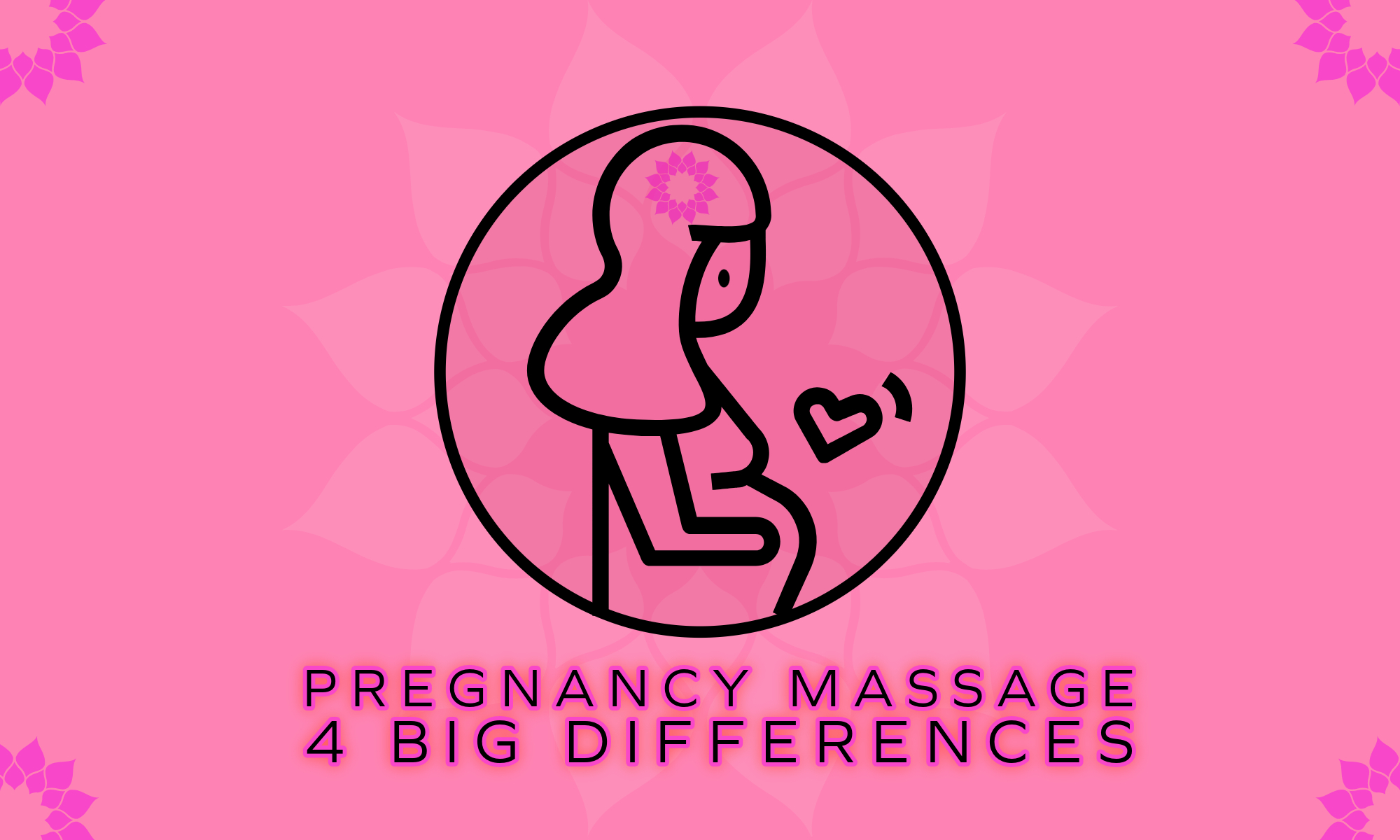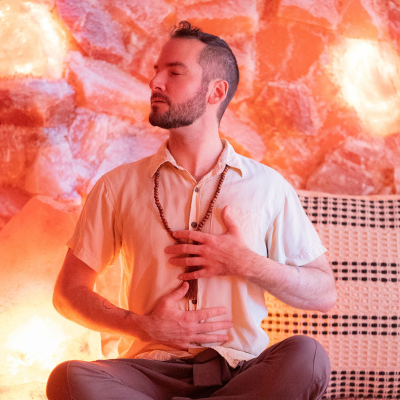Pregnancy massage is a wonderful treatment during strange months of gestation. There are, however, some important differences to this type of massage, compared to massages at other times of adult life. Let’s have a look at what they are.
Table of Contents

Pregnancy Massage Indications and contra-indications
All types of massage come with their indications and contra-indications. Pregnancy massage is no different.
Contraindication #1: First trimester
The main contraindication is: no massage of any kind during the first trimester. The first trimester is the time in which a pregnancy is most likely to fail. So, as a general safeguard, we don’t do any bodywork during the first three months of pregnancy. Once twelve weeks have elapsed, we still need permission from the family doctor, midwife, or gynaecologist.
Indication #1: Relief from aches and pains
The number one indication of pregnancy massage is: pain relief.
Pregnant women are not ill. They are pregnant. But, gestation presents a set a challenges that are short-lived, but unique to this special life moment.
The development of the belly presents musculo-skeletal challenges around how and where weight is balanced in the body, and how the spinal column responds the the everyday shock absorption of things like walking. If a woman already has a toddler or babe-in-arms to attend to, the back, neck and arms can get particularly worn out.
Connective tissue changes due to fluctuating hormones can produce aches and pains that come and go during the day, but can be especially tiresome during the night. The laxity in connective tissue during pregnancy means that massage therapists must adopt a “don’t know go slow” attitude, especially when working around the pelvis.
But, a well designed pregnancy massage can go a long way to helping a woman feel more comfortable. That is why it’s indication number one!
Indication #2: Relief from swelling
A pregnant woman has about 50% more blood in her body than usual! More blood equals more perfusion of liquid into the intra-cellular and tissue spaces. The result: swelling.
Edema in the legs and and ankles is an extremely common side-effect of later-stage pregnancy. Manual Lymphatic Drainage massage is uniquely suited to relieving puffiness, calming the central nervous system, relieving pressure on the inguinal lymph nodes, and generally helping an expectant mother feel more herself again.
A qualified MLD therapist will be able to explain about the importance of breathing, and the changes in the diaphragmatic pump during pregnancy. These are specialist topics that won’t often be addressed by the medical team, but which can go a long way to helping a woman understand what is happening to her body.
Through a clear, helpful explanation, and good understanding of the lymphatic system during pregnancy, a women can feel more serene and at ease during this singular moment in her life.
The Four Big Differences
Aromatherapy or Essential oils
During pregnancy, it is recommended that no essential oils be used. In very late stages of pregnancy, some chamomile could be added to the carrier oil. But, I adhere strictly to this rule: No essential oils.
Essential oils are highly concentrated because they have been extracted and distilled. We smell them, and we also absorb them via the skin.
The skin is the largest organ in the body, and has a high degree of venous irrigation. This means that things that you apply to the skin get into your blood supply very quickly.
Essential oils contains lots of organic compounds like terpenes, benzenes, and toluenes. As adults, we have all been exposed to these chemicals and most of us can tolerate them. But a developing foetus has not had any environmental exposure, yet. Although the mother’s liver and kidneys would filter the blood, we still don’t want to mess around with this. Don’t use essential oils in your pregnancy massage practice.
Electromedicine
Devices like Indiba, TENS, or (my favorite) HIVAMAT, all have one thing in common: they use electricity to stimulate the skin and/or connective tissue and/or nerves in order to relieve pain and promote healing.
The developing foetus is particularly sensitive to electrostatic fields. During pregnancy massage, electromedicine devices of any kind are not used.
Reflexology points
Reflexology is particularly nice for the expectant mother. Not only is positioning on the massage couch easier (no side-lying), the feet take a beating during gestation and often need some TLC.
Having said that, there are certain reflex points on the ankles that heels that must be avoided until a woman is full term. Make sure not to stimulate points related to the uterus when giving reflexology massage!
Positioning on the massage couch
It is unlikely that a women past her first trimester will be comfortable lying face-down for any period of time. Structure the treatment so that she is at ease.
Avoid lying for too long on the left side, as this makes her heart work harder. Try side-lying on the right side, with pillows between the knees and in front of the belly (for the free arm).
If she can lie on her back, slightly raise the legs, to relieve pressure on the lower back. Work with your patient, making sure she knows that she can speak up in case she needs to move or, as often happens, she needs to get up to pee halfway through the treatment.
How to book an appointment
If you like what you have read here, and think that you may know someone who could benefit from a massage during pregnancy, send her my way! I have an intuitive and easy-to-use booking system that allows you to choose your time and date.
I can also prepare a gift card for your loved one. Just drop me a line at rosetintyourlife (at) gmail (dot) com and I will get back to you. You can also use the Whatsapp button on the bottom right of your screen.

At Rose Tint Your Life, I am here to help you live your best life in plenitude and wellness. Here’s to your good health!
-Rachel




